This article was first published in 2020.
Fei was arrested as soon as she arrived in Hong Kong from Guangzhou in 2015. She was en route to Kuala Lumpur to deliver a parcel to a businessman at her boyfriend’s request. Fei, who trusted him, did not know that he had put drugs inside her bag.
Fei was interrogated by Customs and Excise officers for 12 hours before being transferred to a police station where she was detained for two days. During her interrogation, she insisted that she did not know about the drugs and pleaded for help.
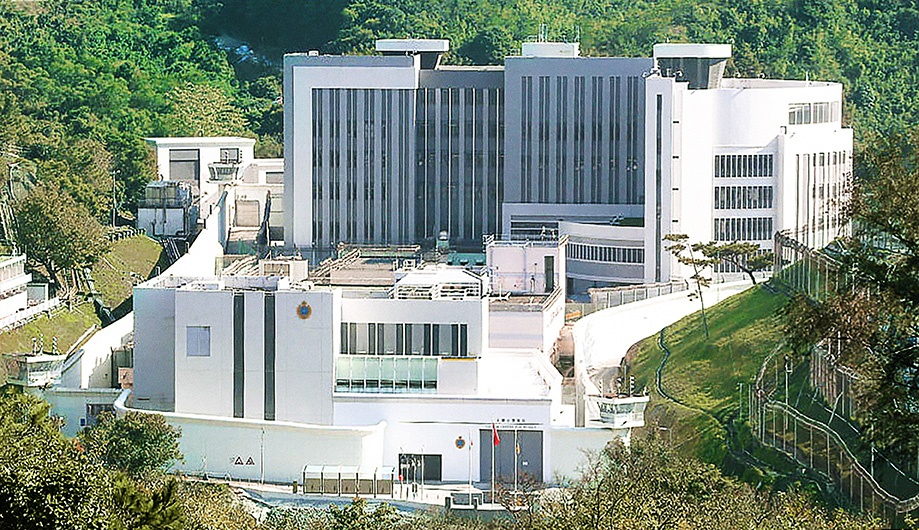
She then appeared in court and was transferred to the Tai Lam Centre for Women, a maximum security women’s prison in Tuen Mun. Fei wrote to the Liaison Office of the Central People’s Government in Hong Kong, as well as police stations in mainland China, to seek help but never got a reply.
Fei’s story is not an isolated one. There are currently 1,347 women incarcerated in Hong Kong, of whom nearly half are non-local and convicted of non-violent crimes, including drug trafficking and immigration violations.
According to the latest data from the World Prisons’ Brief, females make up between two and nine per cent of total numbers in about four out of five prisons worldwide. Only 19 systems have a higher percentage. At the top of that list sits Hong Kong, which currently has more women among the prison population than any other jurisdiction in the world.
Critics argue that Hong Kong’s criminal justice system is “draconian”, as it is one of the few to make no distinction when passing sentences with regard to the accused’s actual role within a drug operation. It is also one of only six jurisdictions where previous good character is not recognised as a mitigating factor. As a result, those convicted of trafficking receive some of the world’s harshest custodial sentences.

“The starting point for a person convicted in Hong Kong for trafficking in 5 kilograms of cocaine is 26 years, 4 months, regardless of their role in the operation,” Rachel Li, research and policy officer at Justice Centre Hong Kong, told HKFP. “I believe the reason for this is to deter potential traffickers. But it is almost always people at the bottom of the food chain – vulnerable and marginalised women – that are being penalised, when people on top get away with it. Victims of trafficking should be offered protection, not criminalisation.”
According to a 2018 study, low-level drug mules are convicted at a rate of more than one a day in Hong Kong’s High Court, while only one gang organiser or senior syndicate member is sentenced every eight months.
No Mas Mulas (No More Mules), a campaign by Hong Kong-based NGO Voice for Prisoners, has published dozens of letters from drug trafficking victims incarcerated in Hong Kong.
In one letter published in 2018, a 19-year-old Malaysian woman was arrested for carrying 1.5 kilograms of ketamine into Hong Kong. “I was scared and afraid, but I needed the money because my family was in a poor status. My dad was old and my mum passed away when I was barely one year old,” she wrote. “Because of my situation I had no other choice but to accept this job.”

“I think in general, there’s very little appreciation of the fact that people can be exploited for criminal activities,” said Li. “So when the issue of human trafficking is brought up, people may associate that with sex workers or migrant domestic workers. The linkage between exploitation of vulnerable people for criminal activity is not explored. And this lack of awareness means that most victims are identified as offenders instead of victims who may need protection.”
In 2016, Keishu Mercedes Gutierrez Alvarez, a Venezuelan national charged with one count of trafficking in a dangerous drug, was found guilty by a jury in Hong Kong and sentenced to 25 years in prison.
The decision came after a week-long trial where the court heard the defendant’s claims that she was coerced into bringing the drugs to Hong Kong after being deceived, held captive for several weeks, repeatedly beaten, raped and forced to take drugs in Brazil.

The court also heard that the officers involved in her arrest in August 2015 admit that they have never received any training in human trafficking, never offered any medical assistance in response to Alvarez’s statements, and did not follow up on the information that she provided about her captors until three months later.
“There’s a need to increase awareness among the public of the harm that human trafficking does to its victims,” Aman Yee, spokesperson of Stop Trafficking of People (STOP), told HKFP. “And the government must lead this conversation to produce more comprehensive policies to safeguard these vulnerable people.”
In December 2019 Indonesian migrant domestic worker and journalist Yuli Riswati, who covered the Hong Kong protests, was detained for 28 days at the Castle Bay Peak Immigration Centre (CIC) and eventually deported for overstaying her work visa.
Her case caused outrage among the migrant worker community, as well as pro-democracy protesters and activists, who felt the decision was politically motivated.
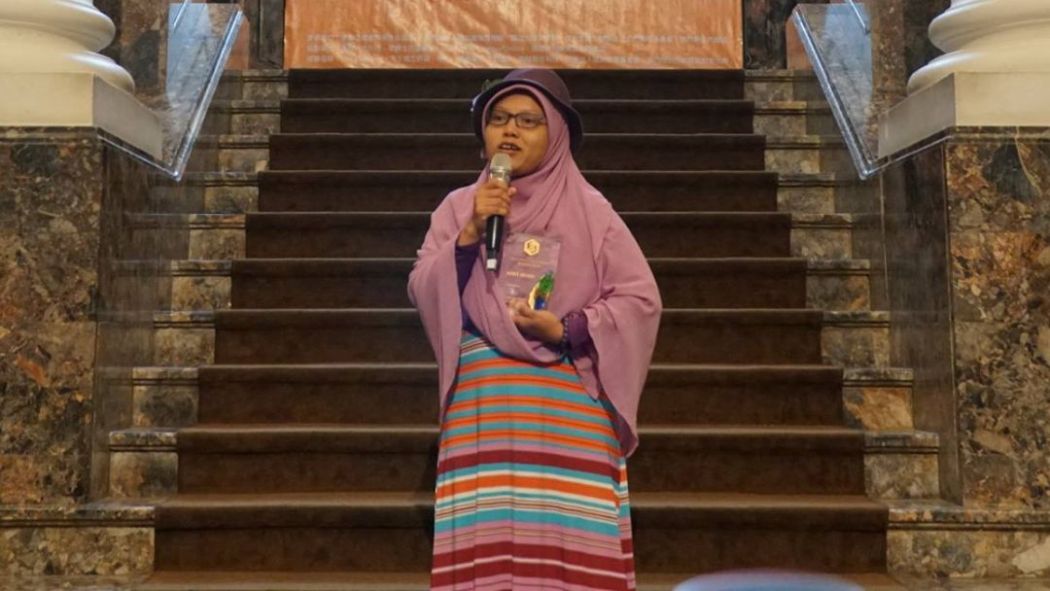
“What Yuli faced is an unusual practice of the Immigration Department and probably unlawful. It is clearly a political suppression against Yuli for her writing, for her speaking up for the Hong Kong protesters,” said Fish Ip, regional coordinator for International Domestic Workers Federation, in a statement at the time.
At a solidarity rally held for Riswati shortly after her deportation, Riswati in a phone call described conditions at the immigration centre as “inhumane” and “unjust”. On one occasion, she was allegedly made to take off her clothes for a check-up with a male doctor, which she found difficult to accept as a Muslim. Riswati said that she suffered from depression after her ordeal.
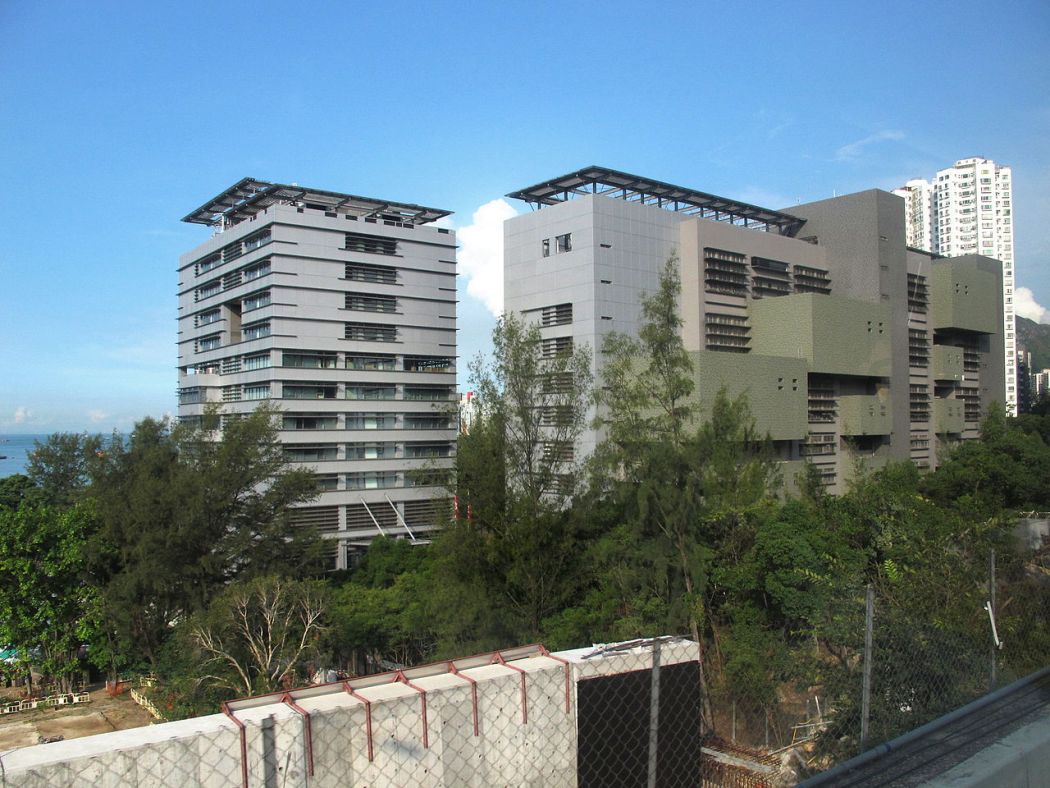
The CIC Detainees Rights Concern Group was established shortly afterwards to raise awareness about the conditions at the centre.
Many of its detainees are asylum-seekers escaping political conflict, civil war or torture. Some have told the concern group they were detained with no explanation, sometimes for months on end. In one case a former detainee was held for two years.
A 36-year-old female asylum-seeker from East Africa, who has been arrested more than once, told HKFP: “They portray themselves as if they are fair, but they are not.”
According to the concern group, it is common practice to ignore detainees’ medical needs. An Indonesian woman lost two fingers after not receiving proper medical treatment when she broke them.
According to the concern group, detainees are often put into solitary confinement.
In contrast, Law Wan-tung, the employer who was found guilty of torturing and abusing Indonesian domestic worker Erwiana Sulistyaningsih in 2015, was released from prison in 2018 after serving only half of her six-year sentence. Hong Kong prison authorities were under mounting pressure to explain why the employer – who made headlines around the world – was allowed out early.
When the case came to trial, the court heard how Erwiana had been beaten frequently, knocked out on one occasion, and even had a metal vacuum cleaner tube shoved in her mouth.
In July, Apple Daily reported that more than 300 individuals, mostly men, were coerced into filming a pornographic film by an acquaintance they had met online. The video, claimed the perpetrator, was for only for viewing by a rich businessman. However, it was later found that some of the films had been sold online.
In March, a 24-year-old man named Wong reported to the Tin Shui Wai police division that he had signed an employment contract with a man and was not paid after completing the job. Another 22-year-old male reported to the Yuen Long division that the perpetrator had threatened him, telling him that he would cause personal injury and property damage if he did not take part in the film.

To date, no one has been arrested for the crime, and the case has been passed to the Yuen Long Criminal Investigation Unit for follow-up.
“When it comes to sex trafficking, we think that LGBT+ victims are treated the worst in terms of victim blaming,” said Yee, the STOP spokesperson. “Even in terms of the media, there is a lot of stigmatisation towards the community. But globally there are more female than male victims of trafficking and modern slavery; and women and girls are disproportionately affected, accounting for 99 per cent of victims in the commercial sex industry.”
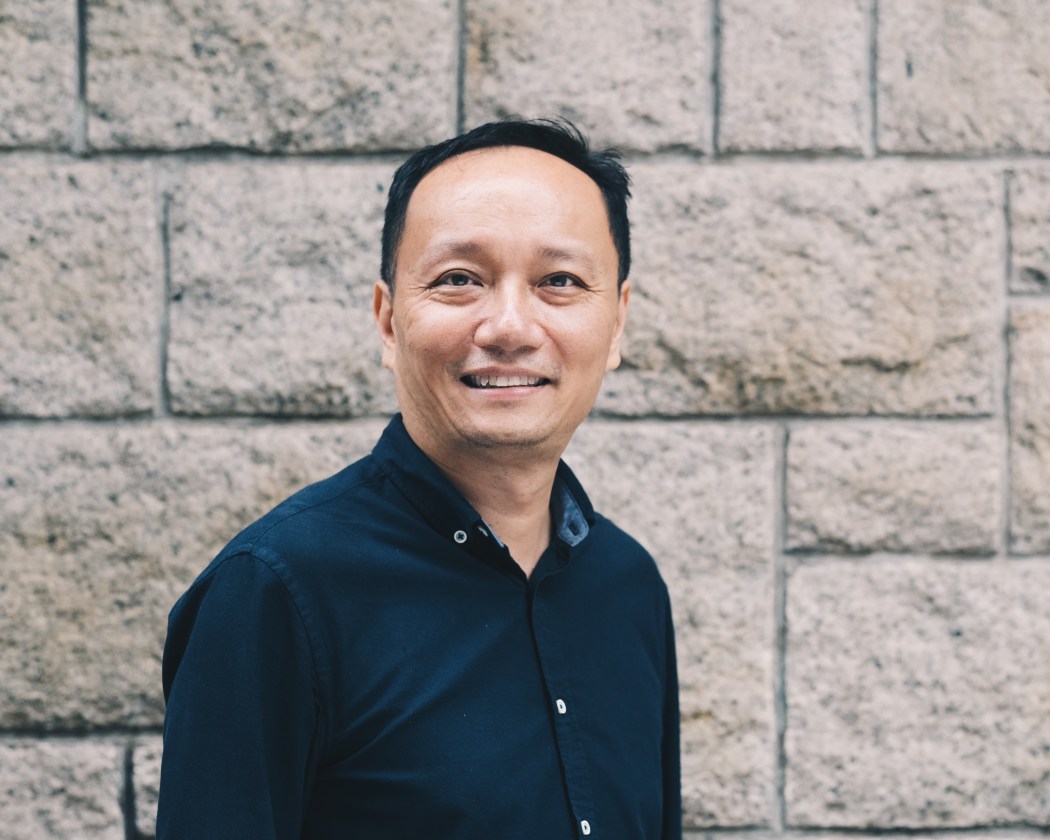
According to a newsletter published by local NGO Ziteng, 298 sex workers were arbitrarily arrested by police in 2019. Another 55 sex workers said police broke into their homes without a warrant, 12 workers experienced verbal threats and insults, and 18 workers were made to give a free massage before their arrest.
“We appeal to the police to seriously handle the cases of sex workers and remain impartial,” Ziteng wrote in the newsletter. “The police management should also review the performances of its officers and penalise those who break the law or code of conduct. At the same time, an independent complaint system should be developed.”
In July, the US put Hong Kong on a human-trafficking watch list, saying the city had failed to pass laws targeting the crime and had become sluggish in its investigative efforts, despite spending tens of millions of dollars on new staff.
“Hong Kong still does not have a comprehensive anti-trafficking law that criminalises all forms of trafficking, in accordance with the definition set forth in the 2000 United Nations protocol,” said Yee. “So there is a lack of action and prevention, and also no protection for trafficking victims.”
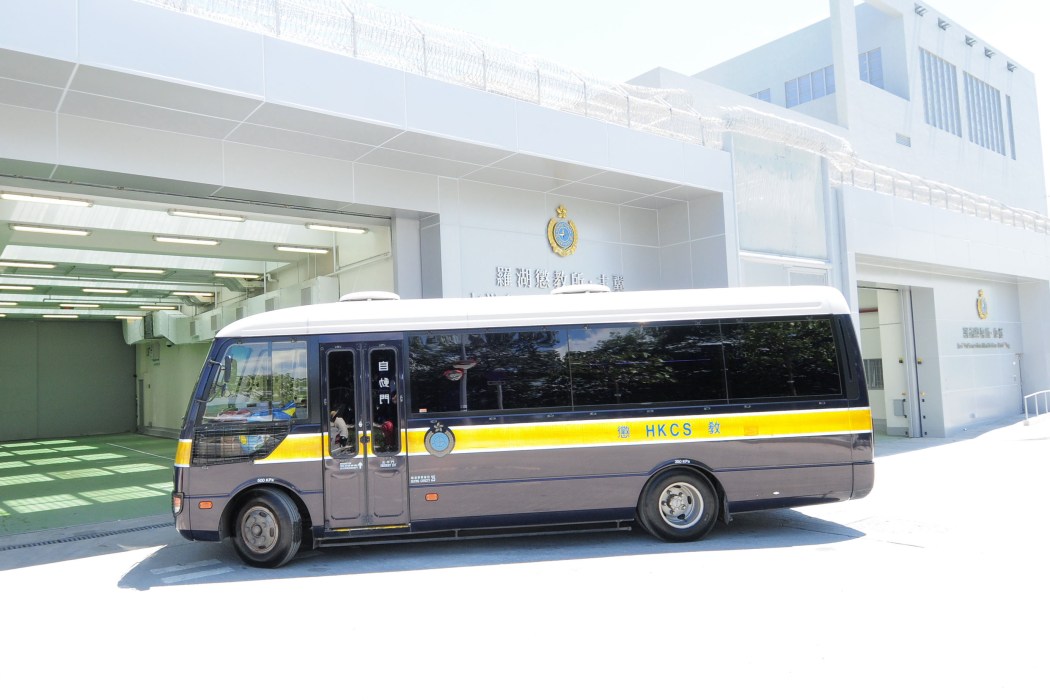
Fei, the mainland Chinese woman who was arrested for drug trafficking, went through two trials in Hong Kong because the jury could not reach a majority verdict. She was eventually acquitted after the second trial, three years after her arrest. The concept of human trafficking was not raised in the hearings.
While in prison, Fei met about 20 other women who were caught trafficking drugs from Guangzhou to Kuala Lumpur. She also met other women from mainland China, the Philippines, Indonesia, India and countries in Africa who were caught trafficking drugs to other places.
“Some go to prison,” said Yee. “Most of the time, trafficked women are hastily deported to their home countries without referral to a relevant agency to assist in their safe return, recovery and reintegration. As a result, many are highly vulnerable to re-trafficking upon return, particularly those going back to situations which contributed to their trafficking in the first place… The cycle doesn’t break.”
Fei’s name was changed for her protection.
Correction 22.10: According to the World Prisons’ Brief, Hong Kong currently has more women among the prison population than any other jurisdiction in the world, not “per capita” as previously claimed. We regret the error.
